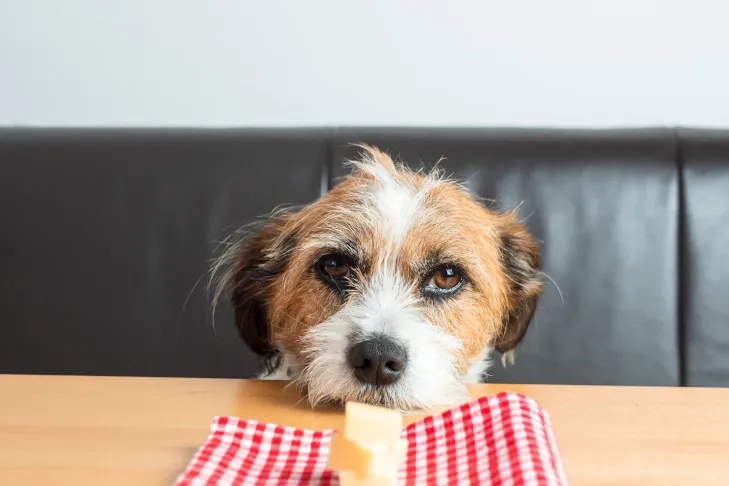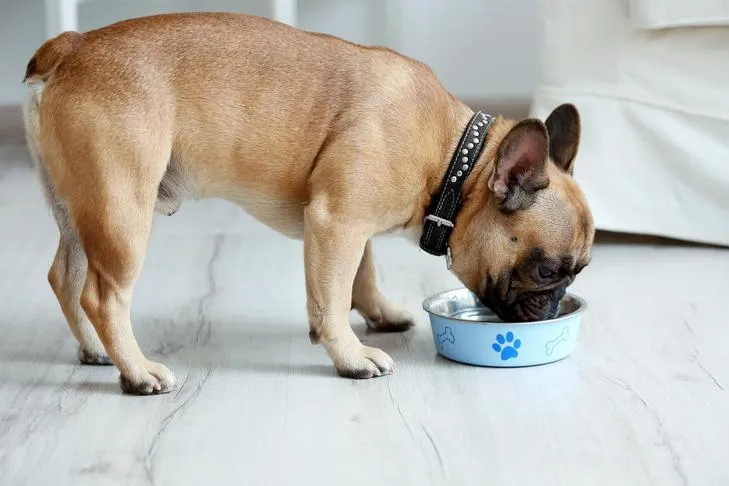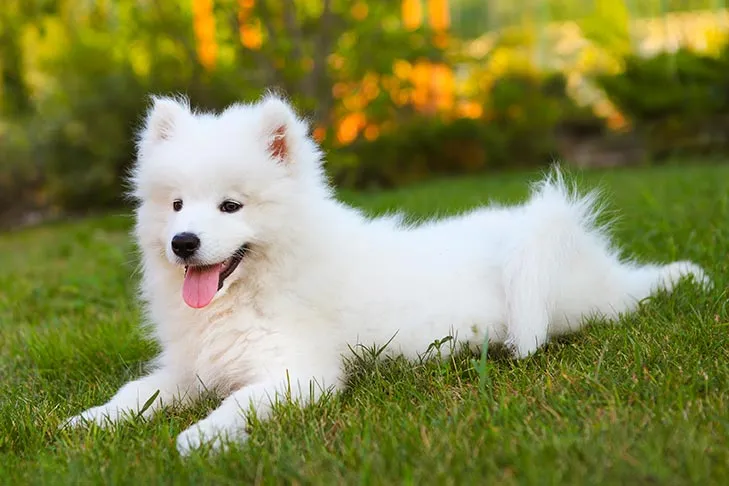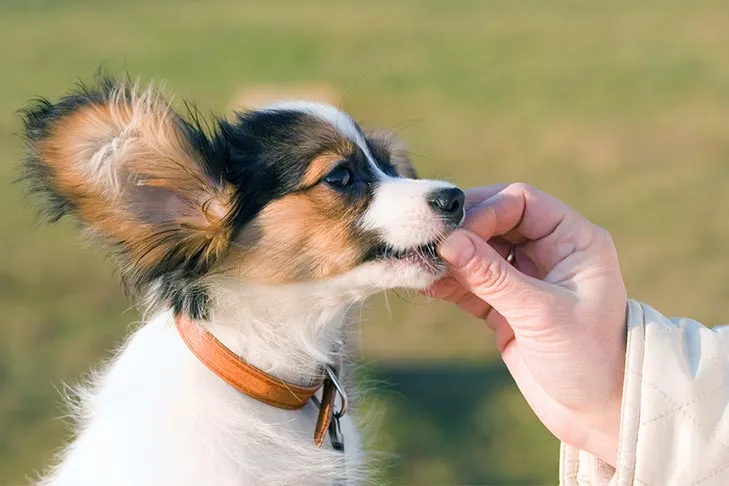As loving dog owners, it’s natural to want to share everything with our furry companions, including our food. However, not all human foods are safe or healthy for dogs. Understanding What Human Treats Can Dogs Eat and which ones to avoid is crucial for their well-being. This guide from Dog Care Story aims to provide you with expert-backed information on common human foods that are generally safe for canine consumption, helping you make informed decisions about your pet’s diet. For a broader understanding of what your dog can and cannot consume, explore our detailed article on what can dogs eat and not eat.
Safe Human Foods for Dogs
Many common household foods can be safely enjoyed by dogs in moderation, offering them a tasty treat without health risks. Always introduce new foods slowly and observe your dog for any adverse reactions. When preparing any human food for your dog, ensure it is plain, unsalted, unseasoned, and cooked appropriately.
Bread
Small quantities of plain bread are typically safe for dogs. It should be free of spices, especially garlic or onion, and definitely no raisins, which are highly toxic to dogs. While bread offers no significant nutritional benefits, and homemade varieties are preferable due to fewer preservatives, it’s best served as an occasional, small treat. Overfeeding can lead to unnecessary carbohydrate and calorie intake, contributing to weight gain.
Cashews
Cashews can be a healthy snack for dogs when given in moderation. These nuts contain beneficial nutrients such as calcium, magnesium, antioxidants, and protein. However, despite being lower in fat than some other nuts, consuming too many cashews can still contribute to weight gain. Always offer unsalted cashews to avoid excessive sodium intake, which is detrimental to canine health.
Cheese
Most dogs can enjoy small to moderate amounts of cheese. It can be a great, high-value treat, provided your dog does not have lactose intolerance, which is rare but possible. Opt for lower-fat varieties such as cottage cheese or mozzarella to prevent excessive fat intake. Many dog owners also choose specialized dog chews made from dried cheese for a safe and enjoyable snack.
 All American Dog resting its head on the kitchen table looking at cheese.
All American Dog resting its head on the kitchen table looking at cheese.
Coconut
This versatile fruit can offer several health benefits for dogs. Coconut contains lauric acid, known for its potential to combat bacteria and viruses. It may also help alleviate bad breath and improve skin conditions such as hot spots, flea allergies, and general itchy skin. Both coconut milk and coconut oil are safe for dogs. When feeding coconut, ensure the hard, fibrous outer shell is removed to prevent choking hazards or intestinal blockages.
Corn
Corn is a common ingredient in many commercial dog foods, and plain, cooked corn is safe for your canine friend. It provides essential nutrients and fiber. However, it is crucial to remove the corn kernels from the cob entirely, as the cob itself is indigestible and can cause a dangerous intestinal blockage. Consider offering a fun, squeaky corn-shaped toy as an alternative to the actual food.
Eggs
Fully cooked eggs are an excellent source of protein and can even help soothe an upset stomach. They are packed with amino acids and other vital nutrients beneficial for your dog’s health. It is essential to cook eggs thoroughly, as raw egg whites contain avidin, which can interfere with biotin absorption, potentially leading to biotin deficiency over time.
Fish
Certain types of fish, when properly prepared, can provide a healthy boost for your dog due to their rich content of good fats and amino acids. Salmon and sardines are particularly beneficial. Salmon is loaded with vitamins and protein, supporting overall health, while sardines offer easily digestible bones for extra calcium. Always ensure fish is fully cooked and cooled, and meticulously remove all tiny bones, except for the soft bones in sardines. Limit fish intake to no more than twice a week. Ensure that any meat your dog consumes, including fish, is free from harmful additives; for specific concerns about certain meats, refer to our guide on what human meat should you never feed your dog.
Ham
While a small piece of ham won’t harm your dog, it’s not the healthiest option due to its high sodium and fat content. Ham should be given sparingly as an occasional treat, not a regular part of their diet. Excessive consumption can lead to gastrointestinal upset or more serious health issues over time.
 French Bulldog eating from a bowl at home.
French Bulldog eating from a bowl at home.
Honey
Honey is a nutrient-dense treat for dogs, containing vitamins A, potassium, calcium, magnesium, copper, and potent antioxidants. Small amounts of honey can potentially help with seasonal allergies by gradually exposing their immune system to local pollen. Beyond ingestion, honey can also be applied topically to minor burns and superficial cuts for its natural healing properties.
Milk
Dogs can drink milk, but caution is advised. Some dogs are lactose intolerant and may experience digestive upset such as diarrhea or gas after consuming dairy. If your dog tolerates milk well, a small amount is generally fine. However, water is always the best and safest choice for hydration.
Peanut Butter
Peanut butter is a popular and excellent source of protein, heart-healthy fats, vitamins B and E, and niacin for dogs. Always choose raw, unsalted peanut butter as the healthiest option. Crucially, always check the label to ensure it does not contain xylitol, an artificial sweetener that is highly toxic and potentially fatal to dogs.
Peanuts
Unlike almonds, plain peanuts are safe for dogs in moderation. They are packed with beneficial fats and proteins. However, due to their fat content, overfeeding can lead to pancreatic issues. Always offer unsalted peanuts, as too much salt can be difficult for a dog’s kidneys to process.
Popcorn
Air-popped popcorn, without butter or salt, can be a safe treat for your dog in moderation. It contains riboflavin and thiamine, which support eye health and digestion, along with small amounts of iron and protein. Ensure all kernels are fully popped, as unpopped kernels pose a choking hazard.
Pork
Pork is a highly digestible protein source, rich in amino acids, although it tends to have a higher calorie count per pound than other meats. It can also be a good option for dogs with allergies to more common proteins. As with all meats, ensure it’s cooked thoroughly and free of excessive fat, seasonings, onions, or garlic. If you’re considering a raw diet or specific raw meats for breeds like huskies, it’s vital to research what raw meat can huskies eat to ensure safety and nutritional completeness.
 Samoyed puppy laying in the grass outdoors.
Samoyed puppy laying in the grass outdoors.
Quinoa
Quinoa, a complete protein, is increasingly found in high-quality dry dog foods. Its strong nutritional profile makes it a healthy and often superior alternative to common starches like corn, wheat, and soy, which are frequently used in kibble production.
Salmon
As mentioned earlier, fully cooked salmon is an outstanding source of protein, healthy fats, and amino acids, boosting joint health, brain function, and the immune system. However, raw or undercooked salmon can harbor parasites that cause severe illness, including vomiting, diarrhea, dehydration, and potentially death. Always ensure salmon is cooked completely to eliminate these parasites.
Shrimp
A few fully cooked shrimp, with the shell, tail, head, and legs entirely removed, can be a fine treat for your dog. Shrimp are rich in antioxidants, vitamin B-12, and phosphorus, while being low in fat, calories, and carbohydrates, making them a healthy occasional snack.
Tuna
Cooked, fresh tuna can be given to dogs in small amounts. In moderation, it’s an excellent source of omega-3 fatty acids, which support heart and eye health. Canned tuna, particularly tuna packed in water without added spices, can also be offered sparingly. Be mindful of the small amounts of mercury and sodium often present in canned varieties, which should be avoided in excess.
Turkey
Plain, cooked turkey is generally safe for dogs. Before feeding, always remove any excess fat, skin, and especially bones. Poultry bones can splinter during digestion, leading to dangerous blockages or internal injuries. Ensure the meat is free of excessive salt, seasonings, onions, or garlic, all of which can be harmful to dogs.
Wheat or Grains
Contrary to popular belief, grains like wheat and corn are not inherently bad for dogs. In fact, for most dogs, they are excellent sources of protein, essential fatty acids, and fiber. A grain-free diet is only necessary if your dog has a diagnosed grain allergy. Always consult your veterinarian for dietary recommendations specific to your dog’s health needs.
Yogurt
Plain yogurt is a perfectly acceptable snack for dogs. The active bacteria (probiotics) in plain yogurt can help strengthen their digestive system. However, some dogs may have difficulty digesting dairy products, similar to milk. Always choose plain, unsweetened yogurt and avoid any varieties containing artificial sweeteners, especially xylitol, which is toxic to dogs.
 Papillon puppy gently taking a treat from a hand.
Papillon puppy gently taking a treat from a hand.
Human Foods Dogs Can’t Eat
While many human foods offer safe and healthy treats, it is equally, if not more, important to be aware of the foods that are dangerous or toxic to dogs. Certain common human foods can cause serious illness, severe health complications, or even be fatal. Always keep a strict watch to ensure your dog does not ingest any harmful substances. If you suspect your dog has eaten something toxic, contact your veterinarian immediately. For a comprehensive list of unsafe foods, consult our guide on what food does dog can t eat.
Understanding what human treats can dogs eat empowers you to provide a varied and enjoyable diet for your pet while prioritizing their health and safety. Always introduce new foods cautiously and consult your veterinarian for personalized dietary advice. Sharing certain human foods can be a wonderful bonding experience, but always with awareness and moderation.
